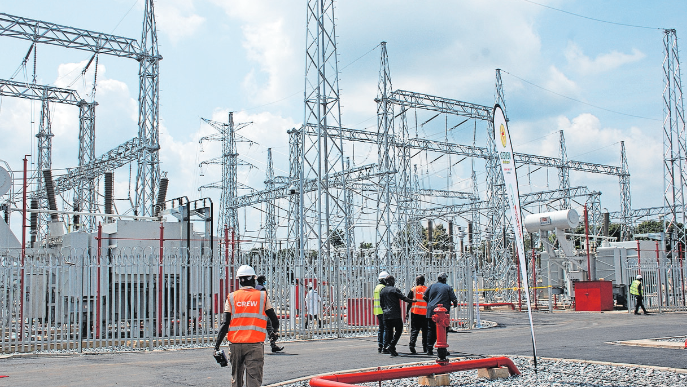Police embark on restructuring to enhance crime response

The Director of Police Operations, AIGP Frank Mwesigwa addresses leaders and security officers in Ntoroko District on Tuesday during the opening of the new police station. Photo | Alex Ashaba
What you need to know:
- This move, announced by the Director of Operations, Assistant Inspector General of Police (AIGP) Frank Mwesigwa, will involve closing existing police posts and consolidating them into single, well-equipped sub-county police stations.
In a bid to bolster security, the Uganda Police Force is set to roll out a new sub-county policing model.
This move, announced by the Director of Operations, Assistant Inspector General of Police (AIGP) Frank Mwesigwa, will involve closing existing police posts and consolidating them into single, well-equipped sub-county police stations.
"The new model will have each sub-county with one centralised police station, staffed with 18 personnel and three motorcycles for patrolling," AIGP Mwesigwa explained during the commissioning of the new Central Police Station in Ntoroko District on Tuesday.
He emphasised that this restructuring aims to address concerns about inadequate staffing levels in police posts, particularly in Ntoroko District, which comprises six sub-counties and four town councils. The new model will establish 10 police stations, managed by 180 personnel.
Key features of the new policing model:
- Centralized Police Stations: Each sub-county will have one main police station.
- Staffing: 18 police personnel per station, with six on duty at any given time.
- Patrolling: Three motorcycles assigned to each sub-county.
- Emergency Response: Toll-free phone line for reporting cases and emergencies.
Local leaders, including Mr David Kor, Chairman of Kanara Town Council, welcomed the move but emphasised the need for increased police presence, especially in areas with growing populations.
"I urge that we bolster the police presence in Kanara Town Council, strategically located at the Uganda-DR Congo border on Lake Albert, to effectively address the pressing needs of our burgeoning community. The current police personnel are insufficient to manage the situation, and an increase in numbers would significantly enhance our capacity to maintain law and order, ensuring the safety and well-being of our residents," he said.
AIGP Mwesigwa acknowledged the shortage of police officers, citing international standards that recommend one officer for every 500 people. He assured that additional personnel and resources, including canine units and motorcycles, would be deployed to support the new model.
However, concerns remain about the lack of marine police units on Lake Albert, where illegal fishing and other crimes occur.
The Ntoroko Resident District Commissioner, Maj (rtd) John Mugabirwe, highlighted the need for heightened security due to the district's proximity to DR Congo and the threat of ADF rebel attacks.
"Ntoroko's diverse geography spans mountainous areas, midlands, and lowlands, with Lake Albert forming a significant part of our landscape. Regrettably, despite the lake's importance, we lack a dedicated marine police unit to ensure security and enforce the rule of law. Furthermore, the absence of a canine unit has led to an uptick in theft, disproportionately affecting our cocoa, vanilla, and cattle farmers,” he noted.
The Uganda People's Defense Forces have recently been engaged in operations against ADF rebels in the region, resulting in the killing and capture of several rebels.




